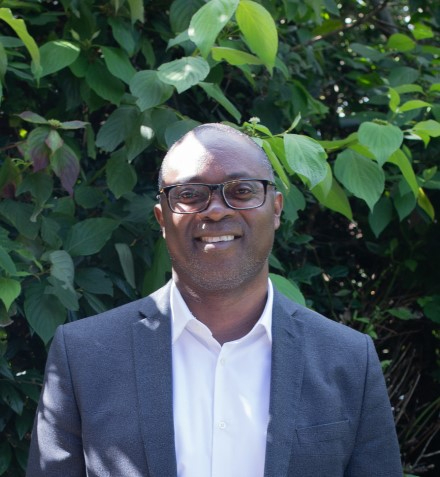As lead NHS provider of mental health services in the area, Lancashire and South Cumbria, we want to get people talking about suicide. Our services include providing therapy and offering hope, treatment and training.
Today (10 September) is World Suicide Prevention Day and this year’s theme is changing the narrative on suicide. By talking more openly about it, we can give people the chance to express how they feel and get the support they need. It could even save a life.
A recent poll showed that only 45% people feel comfortable talking to family and friends about suicidal thoughts, compared to 74% who feel comfortable talking about mental health.* So we want to change that.
Suicide Prevention Lead at LSCft, Dr Raphael Ogbolu, said:
“Lancashire and South Cumbria NHS Foundation Trust is a member of the Zero Suicide Alliance which is a collaborative of NHS Trusts, businesses and individuals who are all committed to suicide prevention in the UK and beyond.
There is always hope and talking about suicide really doesn’t have to be scary or difficult. We provide therapeutic support, treatment and training and we also support those bereaved by suicide.”
One of our suicide prevention initiatives allows you to play your part too. You have the chance to become a suicide first aider with the Orange Button scheme. The orange button is worn by people or displayed by businesses who have undergone specialised suicide prevention training and while they are not able to counsel people, they can provide comprehensive signposting to our services.
It means that people who are having thoughts of suicide, or people who are worried about someone, can now get support and information when they see someone wearing a distinctive orange badge. There are more than 2,500 people and businesses across Lancashire and South Cumbria wearing the badge or displaying the orange button.
The training teaches people to talk about suicide safely and confidently and identify the signs someone is having suicidal thoughts. It also guides you how to develop a safety plan with someone who is having suicidal thoughts and how to signpost someone at risk to the appropriate services we provide.
Doctor Ogbolu is encouraging people to talk about suicide and is sharing his top tips for how best to approach conversations with people who may be in crisis. When having those difficult conversations Dr Ogbolu recommends the following tips. The acronym ORJESTA has been coined to help you remember.
- O: Start the conversation by asking open-ended questions where people have to say more than yes or no. A good example is “How are you feeling?” or “What has been on your mind?”
- R: Have some resources to hand; it can be something as simple as a helpline number, 111 or our Initial Response Service 0800 953 0110, or our helpful website link
- J: Try not to judge, even if you are shocked, upset or scared, or struggling to understand what is making them feel suicidal. They may have taken a big step by telling you
- E: In an emergency if you are concerned that someone has a plan to imminently harm themselves, you should call 999.
- S: Take them seriously
- T: Give them time to talk, and listen calmly and be patient. You might feel anxious to hear their answers, but allow them the space and time they need to open up
- A: Ask direct questions don't skirt around the topic or make assumptions. It’s better to ask direct questions about suicide like ‘Are you having suicidal thoughts?’
If you need support
LSCft provides support 24 hours a day and you can speak to a trained professional at our Initial Response Service on 0800 953 0110.
This number can help people having suicidal thoughts and people worried about someone in crisis. The call handler will carry out instant assessment and referrals to appropriate services and support.
You can also dial 111 and select the mental health option.
More information and handy links
Find out more about Dr Raphael’s background in suicide prevention.
Finding a way to say it booklet
* Opinium survey conducted between 9 and 13 February 2024, with a nationally representative sample of 2,001 UK adults

